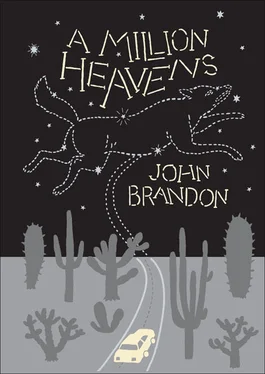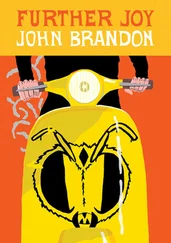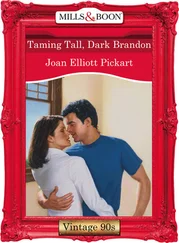When Soren had played that music and fallen into his coma, his father, along with his piano teacher, had been attacked as frauds. Among the attackers were the Catholic Church and also a big atheist who had a show on cable TV. Neither party had heard the music, but instead of tempering their positions, that fact only made them more vociferous. They said the fact that the music had not been released to the public was more proof that a scam had been perpetrated. The Catholics had released a tougher-than-usual statement that referred to Soren’s case specifically and then went on to condemn all false miracles. The atheist, who always had sweat on his brow and called himself a humanist , implored Soren’s father to come clean, implored him to admit Soren didn’t write the music, to admit that Soren’s father and the piano teacher had seen an opportunity when Soren had fallen unconscious and had swiftly, ruthlessly capitalized on it. Soren’s father had never done anything ruthless in his whole life, and had rarely done anything swift. And he’d said about a dozen words total to that piano teacher. He’d seen her briefly at the hospital when Soren was brought in and hadn’t heard a peep from her since — probably scared into hiding by that first rush of media harassment. They’d been gone a long time now, the news people, and Soren’s father hoped the piano teacher was okay. He remembered her clothes, a dressy kind of T-shirt and slacks that didn’t go all the way down to her ankles. She’d seemed frustrated, angry even.
The piano teacher taped all her sessions and she’d turned the tape of Soren’s session over to Soren’s father and to the authorities. The music was sixteen seconds long and then you could hear Soren falling and the piano teacher catching him. All that fuss over sixteen seconds of music. There’d been a meeting where three experts offered up their opinions. Only one believed it was possible that Soren had written the music, but all three agreed they’d never heard it before. Soren’s father had let it be known that he would not be selling the music or allowing it to be used for any commercial purpose, that it was Soren’s music and he could decide what to do with it when he woke up, and this was viewed by Soren’s father’s detractors as a strategy, a way to build mystery and hold out for a higher price when he finally did sell the music. Soren’s father was not going to sell the music. He hadn’t even listened to it but once. There wasn’t a whole lot to it. It was certainly sad, but most slow piano music was. He had the original tape somewhere safe and he tried not to think about whether or not his son was a genius. He didn’t know him as a genius. He knew him as his son, whose favorite food was olives, who couldn’t stand having a comb run through his hair, who enjoyed folding the laundry and making perfect squares out of T-shirts.
In the weeks following the lesson, about a dozen lawyers called Soren’s father. They called wanting him to reconsider his position regarding the music, wanting him to entertain offers, wanting to represent him if he was going to do any television appearances, wanting to know if he felt he was being slandered.
Thankfully, because Soren’s father had not gone on TV, had not accused anyone of slandering him, because he had stayed in the clinic and mostly out of view and in his worn jeans and windbreaker didn’t impress anyone as a mastermind, the media hoopla had died down. In place of attention from reporters, the weekly vigil had emerged. Soren’s father was not comfortable being the object of attention, whether the attention came from churches or TV hosts or anonymous Albuquerqueans, and he’d hoped the vigil would be a one-time thing, then a two-time thing, three-time, but it had been going for a month now and the attendees had grown from half a dozen the first night to close to a hundred. These people seemed to be on Soren’s side, but still they made Soren’s father self-conscious, down there peering six stories up. They made him feel there were things he ought to be doing that he wasn’t. On one level they were simply well-wishers, but they also had wishes for themselves that probably weren’t simple at all, hopes to get something out of Soren, and Soren didn’t seem to have anything to give. Apparently Soren had turned over everything when he wrote that music, music the vigilers had of course not even heard. The vigilers were shivering campers, and Soren was their fire. These people were cold in their souls, and if being near Soren offered them comfort then Soren’s father supposed that was okay. The vigils only meant Soren’s father had to close the blinds each Wednesday evening and that for a few hours he couldn’t go out to the landing and smoke. Soren’s father felt bad for the vigilers, really. They were waiting and didn’t know what for. Soren’s father knew what he was waiting for. He was waiting to get his son back.
Arn’s night off, and no vigil. Dannie was sitting with him at the kitchen table, the oven light casting shadows. Dannie had a bowl of cut fruit out, picking at it.
“I’m not going to start sleeping all day like you do.”
“I don’t think you should,” said Arn.
“Then how are we going to see each other more?”
“Quality, right?” said Arn. “Not quantity.”
“I want you to go to sleep right now. I don’t care if you’re not tired. Tomorrow we’re spending the entire day together. We’re going around doing normal-people activities in the sunshine.”
“Like what?”
“The zoo, for one. And we’re going to happy hour.”
“What if I don’t feel happy?”
“You go to happy hour to get happy,” Dannie said.
“Oh, I see.”
“Eat some of this fruit.”
“No way.”
“It’ll go bad.”
“You can say the word ‘fruit’ all you want. Those are still just sugar-veggies.”
Dannie didn’t laugh. She gently chewed a grape. “I was lying when I said I was twenty-seven.”
Arn stuck his chin out.
“I didn’t want you to think I was old. I’m really twenty-nine.”
“Okay,” Arn said. “Lying doesn’t bother me. It’s not a pet peeve of mine.”
“The idea of dating an older woman. I was letting you…”
“You didn’t need to, but it’s okay you did.”
“Not a pet peeve?”
“Lies. The truth. What’s the big difference, really?”
Arn’s face was sober and untroubled.
“You’re not going to be mad at me, not even for thirty seconds?”
“The issue’s dead as Doris Day. Whoever that is. Or was.”
“But I was dishonest. It’s a betrayal.”
“You weren’t honest, but I don’t feel betrayed. Takes more than that to make me feel like someone betrayed me.”
“So you accept my apology?”
Arn nodded. “Twenty-seven, twenty-nine — either way you’re a broken-down old lady.”
A guitar materialized, leaning in a stand right next to the piano. Reggie picked the guitar up and it felt at home in his hands, but he didn’t play it. He put it back on the stand. Whoever was running this show knew he was a musician, and maybe was trying to be hospitable to Reggie, giving him a way to pacify himself, but he didn’t want pacification. He hoped he wasn’t offending anyone — it was a gorgeous guitar, made of unstained white oak that smelled of broken nutshells — but in his predicament happy music seemed mocking and unhappy music indulgent. And writing music, making something out of nothing in the context of this void, would require optimism that Reggie did not at the moment possess. Reggie wasn’t ignorant anymore. There was plenty that was being kept from him, but he wasn’t ignorant enough to believe that writing a song had any point.
Читать дальше












